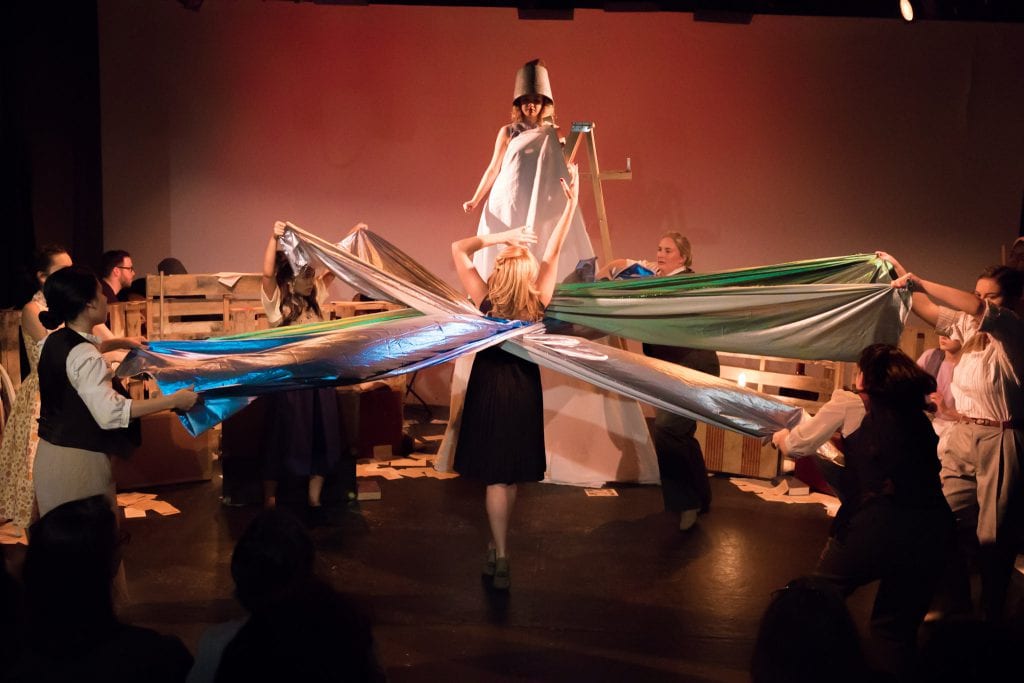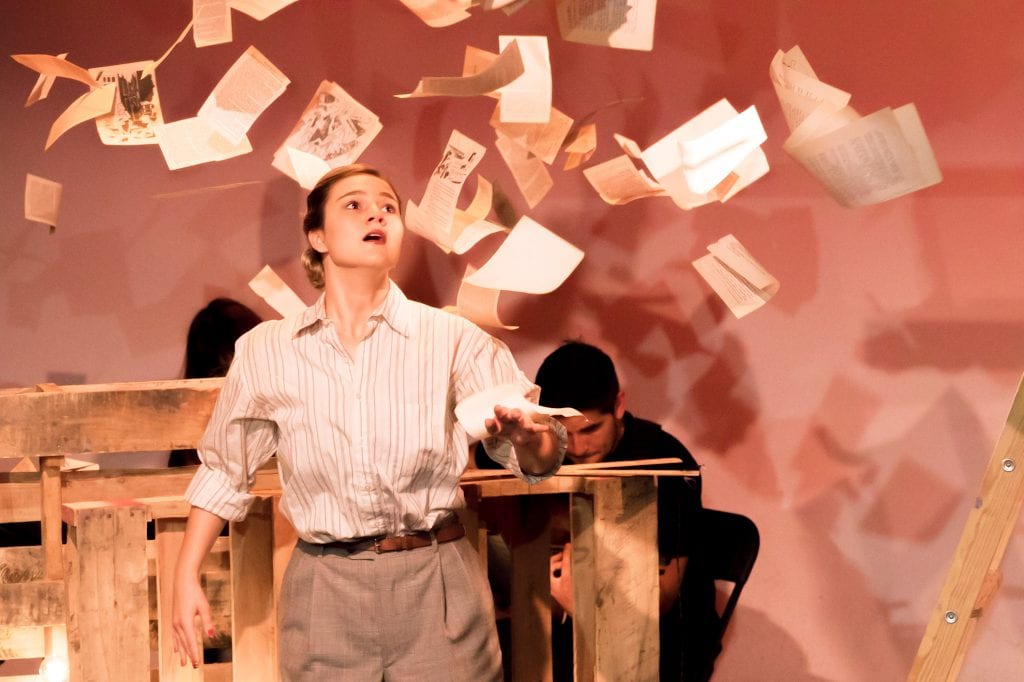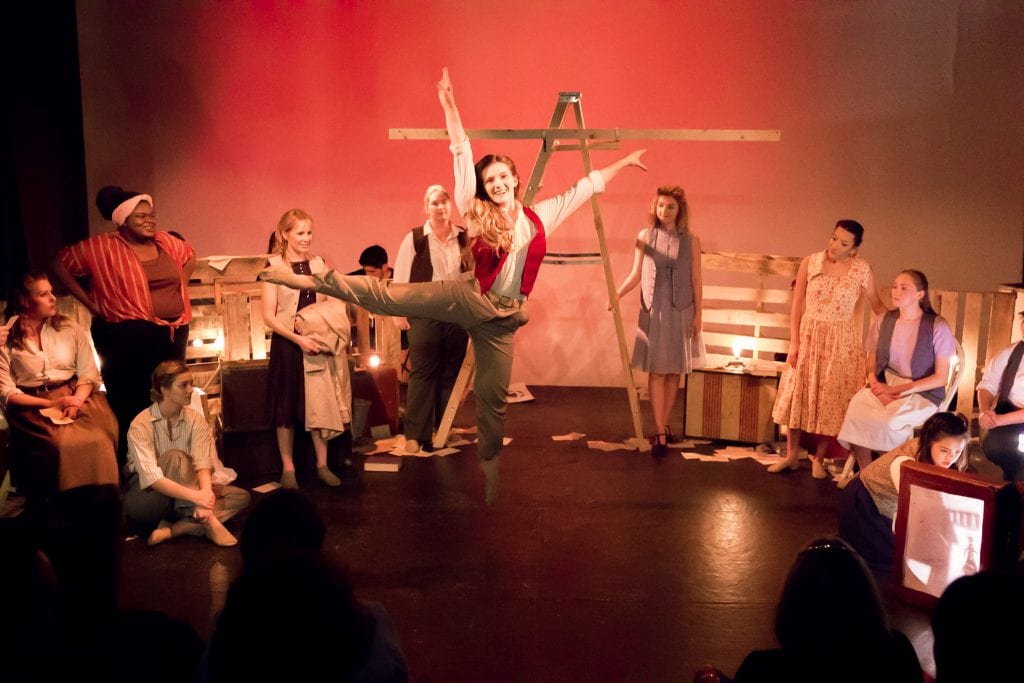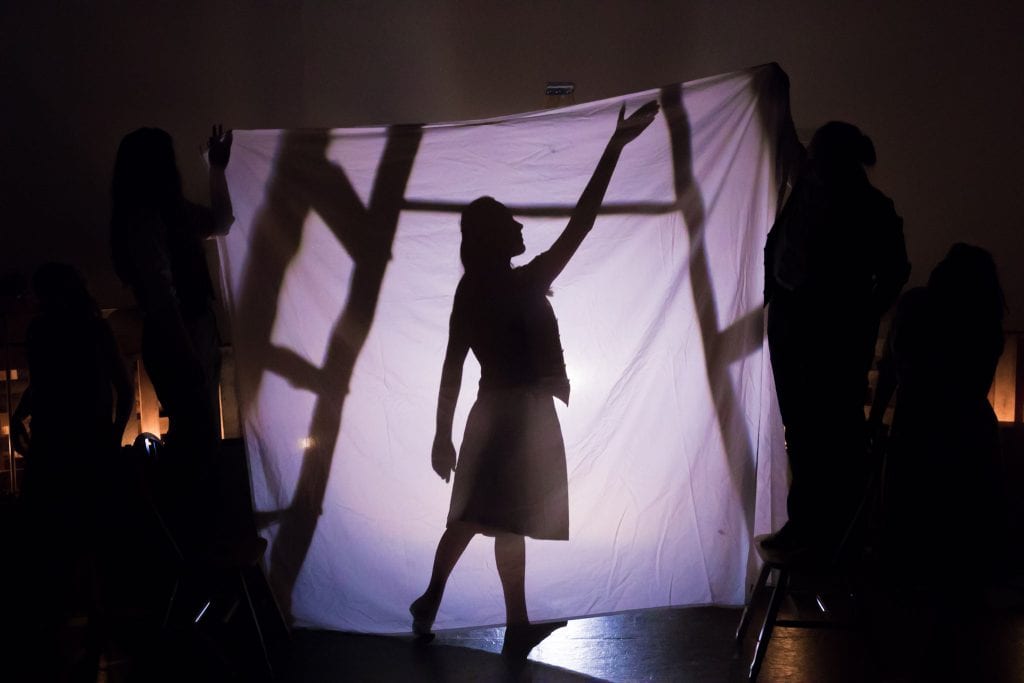The ensemble of Blamed is already on stage at the Soho Playhouse as attendees take their seats – a cast of women in vests, chatting, swirling in dance, and talking in small groups while a quartet played behind them. It’s almost like intruding on a party already in full swing.
Blamed creatively reimagines the stories of women throughout history – real, mythical, iconic, sainted, literary – infamous for breaking free of the feminine constraints of their time. From Helen of Troy and Joan of Arc to Lilith, Medea, Little Red Riding Hood, and Don Maria, these figures bucked conventions and bore the brunt of blame for their individuality, sexuality, rebellion, spurning a man’s love. Even kindness was a means to bring a woman shame and blame.
The piece mixes dance, spoken word, and song, and each player brings her energy and considerable talent to the overall. Particularly beautiful and moving is the song in the Helen of Troy sequence, also performed in sign. And the outfits of the ensemble come to light during the Joan of Arc story; considered a heretic for wearing men’s clothes, one realizes half the troupe is wearing men’s vests. It’s a smart nod to the small victories in equalizing the sexes.
The end of each sequence also has every “victim” given a tight hug by another. The message is clear: the only antidote to blame is the forgiveness and embrace of other women. The act of the hug is powerfully symbolic, as women from the present-day absolve women from the past of their perceived sins.
As the piece progresses, the players become tighter, each passage closing with the group singing and clapping. The ending is joyous and upbeat, as the unified troupe celebrates Woman and the innate power and beauty of the feminine.
Director, writer, and performer Callie Prendiville does an excellent job bringing past to present, using modern-day verbiage to bring home how these stories resonate in an era where women must still continue to push for equal rights. The full troupe brings energy to the Soho Playhouse’s small space, but the dance numbers in the tight space feel somewhat constrained. I wish they had a bigger budget to move beyond some of the simple props and backdrops they employ, but part of the ensemble’s charm is reliance on the considerable talents of the individuals and the group as a whole. The musical accompaniment of Wesley Chavez’s quartet is lovely, marrying the music to the narrative passages, and its traditional melodies harken back to another time, adding a layer of subtext. Justine Sombilon, slight of frame, surprises and stuns with a magnificent, powerful voice, singing “sorrow is a means to an end.” Her musical number is one of the show’s musical highlights.
This is a perfect addition to the Fringe Encore Series, and I can imagine this piece being reimagined and performed by women’s groups around the country as a vehicle to help young women understand the ever-progressing women’s movement, how it is grounded in the past, and how far yet it has to go.
4
Reviewer's Rating




